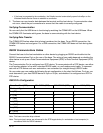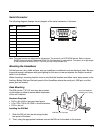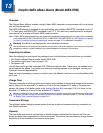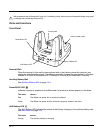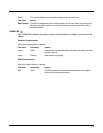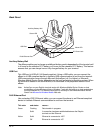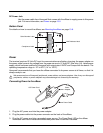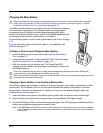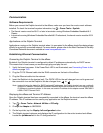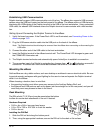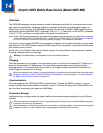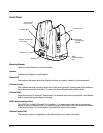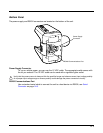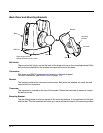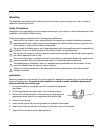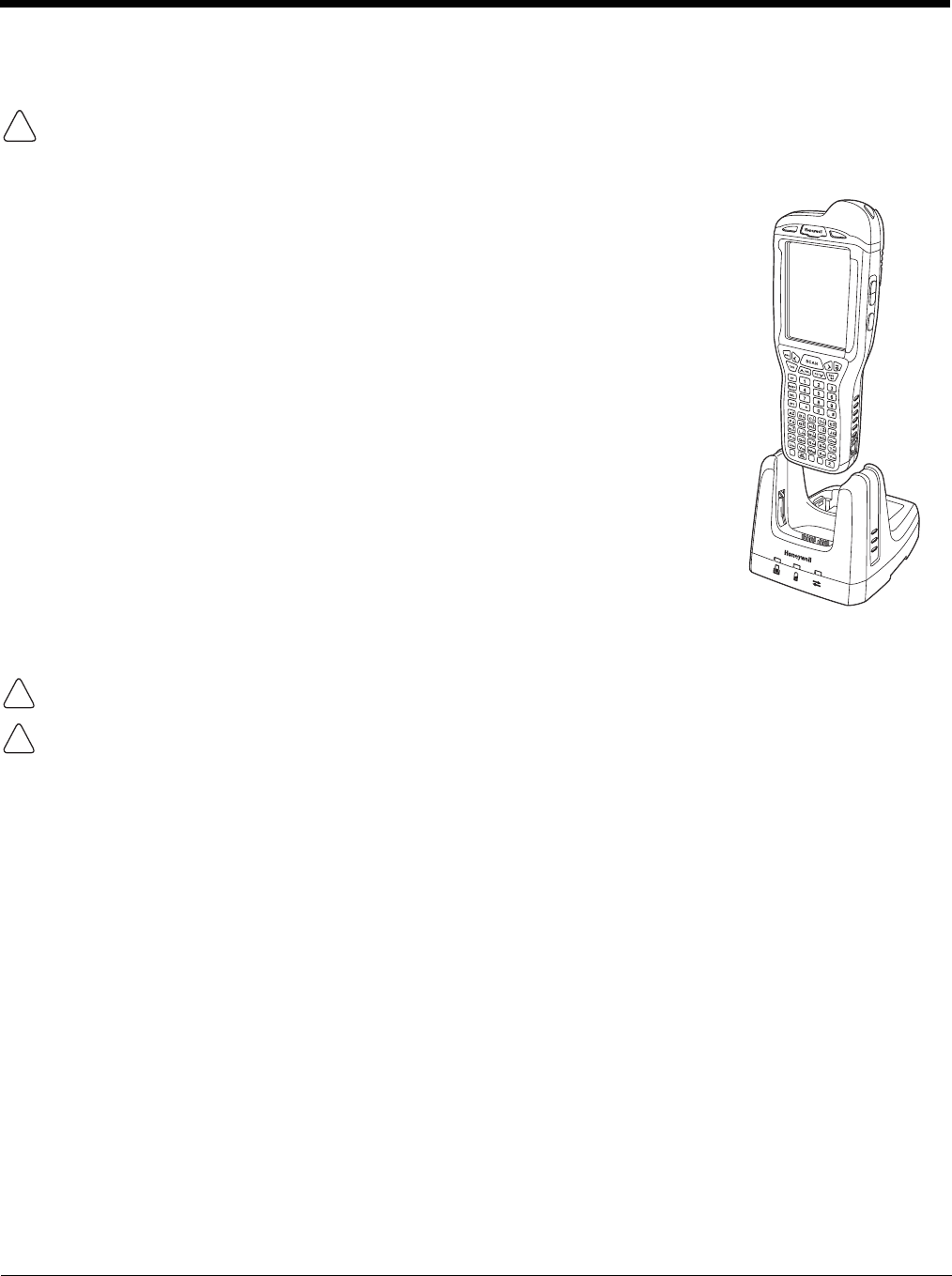
13 - 6
Charging the Main Battery
Before you attempt to use, charge, or change the battery in the terminal carefully read all the information
under Equipment Intended for Use in Potentially Explosive Atmospheres, starting on page 2-1 and the
Guidelines for Battery Pack Use and Disposal
on page 3-13
.
The eBase provides power to the Dolphin terminal and allows the charging
of the terminal’s main battery. The intelligent battery charging system
incorporated into all Dolphin terminals prevents overcharging, which
means that Dolphin terminals may be stored in the eBase indefinitely with-
out damage to the terminals, battery packs, or the eBase.
To check battery power, use the Power system setting; see Power on page
7-16.
For more information about Honeywell Li-poly or Li-ion batteries, see
Batteries on page 3-11.
To Power a Terminal and Charge its Main Battery
1. Install the battery pack in the terminal; see Install the Main Battery
Pack on page 2-3.
2. Verify the base has power. If the Power/Dock LED is not illuminated,
see Connecting Power to the eBase on page 13-5.
3. Slide the terminal into the terminal well. The Power/Dock LED
changes to green. Battery charging begins immediately if required by
the Dolphin terminal.
Ensure all components are dry prior to mating terminals/batteries with peripheral devices. Mating wet
components may cause damage not covered by the warranty.
We recommend use of Honeywell Li-poly or Li-ion battery packs. Use of any non-Honeywell battery may result
in damage not covered by the warranty.
Charging a Spare Battery in the Auxiliary Battery Well
The auxiliary battery well located on the back of the base charges a spare battery independently of the
terminal well. The Aux Battery LED on the front panel indicates the status of the battery in this well.
Charge time is 4 hours for the standard 3.7V battery or 6 hours for the extended battery pack; see
Auxiliary Battery Well on page 13-4.
1. Insert the battery at an angle so the battery pack contacts and the auxiliary well contacts align.
2. Snap the battery into place with a hinging motion. The Aux Battery LED lights orange.
3. Use the AUX Battery LED to monitor the charging progress. The LED lights green when the auxiliary
battery has completed charging and is ready for use.
Note: If the AUX Battery LED flashes red, the internal temperature of the battery is too hot or there is a battery
error. Charge the auxiliary battery in a cooler environment or replace the battery with a new Honeywell
battery pack.
!
!
!



